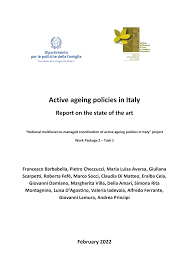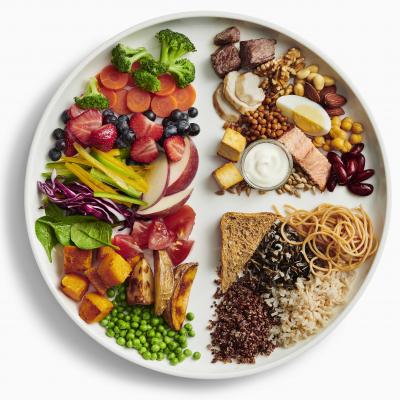
Modern day health care requires that you manage your weight and nutrition. One in four UK adults are obese, according to the NHS. Type 2 diabetes and coronary heart disease are two of the health consequences of obesity. If untreated, this increasing health risk could impact the quality life of future generations. There are many techniques and technologies that will help you bring your swagger back.
A clear understanding of your situation and personal preferences is the first step in managing your weight and nutrition. A qualified professional can help achieve your goals. There are many ways to improve your fitness and keep your body healthy.

Any weight-management program that focuses on healthy eating habits and weight management will need to be aware of how much you eat. You should take into account the calories and what you eat to determine the ideal portion size. This information can help make smart choices and avoid eating too much.
You can make small changes in your routine to help you manage your weight. A good rule of thumb is eating smaller portions every day. A daily workout might be something you should consider. Take a look at the nutrition label of the food you're about to consume. This will make it easier to determine the right amount of nutrients and save you the trouble of calculating the right portion.
The health benefits of improved nutrition are many and varied. Improved nutrition can not only improve your fitness and concentration but also boost your self-confidence. Studies have shown that people who feel happy and self-confident are more likely make positive health choices and to have fewer bad ones. But diet deficiencies can have a significant negative impact on your body. For example, a recent study reported that overweight and obese children were at a higher risk of suffering from coronary heart disease than normal-weight kids. Weight and nutrition management can be a great way to improve your health and lower your chances of dying prematurely.

Other tips and tricks to keep in mind are to eat slowly and mindfully, take advantage of the health benefits of regular exercise and to take time to enjoy your food. A food diary will help you separate the good foods from the bad. It can also improve your overall health.
FAQ
Why should we have a healthy lifestyle to begin with?
A healthy lifestyle will help us live longer and happier lives. Regular exercise, healthy eating habits, healthy sleep habits and stress management can all help prevent strokes, heart disease, diabetes, and cancer.
A healthy lifestyle will also improve our mental health by helping us cope better with everyday stresses. A healthy lifestyle will help you feel more confident and younger.
How to measure bodyfat?
A Body Fat Analyzer will give you the most accurate measurement of body fat. These devices can be used to measure body fat percentages in people who are trying to lose weight.
Exercise: Good or Bad for Immunity?
Exercise is good to your immune system. Your body creates white blood cells, which are immune-boosting and fight infection. You also get rid toxins. Exercise can help prevent heart disease and cancer. It can also lower stress levels.
But, too much exercise can lead to a weakening of your immune system. Exercising too hard can make your muscles sore. This can cause inflammation and swelling. The body will then produce more antibodies to fight infection. These extra antibodies can lead to allergies or autoimmune disorders.
So, don't overdo it!
Statistics
- WHO recommends reducing saturated fats to less than 10% of total energy intake; reducing trans-fats to less than 1% of total energy intake; and replacing both saturated fats and trans-fats to unsaturated fats. (who.int)
- nutrients.[17]X Research sourceWhole grains to try include: 100% whole wheat pasta and bread, brown rice, whole grain oats, farro, millet, quinoa, and barley. (wikihow.com)
- Extra virgin olive oil may benefit heart health, as people who consume it have a lower risk for dying from heart attacks and strokes according to some evidence (57Trusted Source (healthline.com)
- WHO recommends consuming less than 5% of total energy intake for additional health benefits. (who.int)
External Links
How To
10 Tips for a Healthy Lifestyle
How to maintain a healthy lifestyle
We live in a fast-paced world that makes it difficult to get enough sleep, consume too much alcohol, smoke cigarettes, and eat too much. We don't pay enough attention to our body's health.
When you work full-time, it is difficult to maintain a healthy diet and exercise program. It becomes even harder if you are stressed out because your mind tells us that we cannot handle this situation anymore so we start feeling guilty and give up.
If your body feels ill, it most likely is. You should see a doctor and ask him/her what he/she thinks about your current condition. If there is nothing abnormal, then it might just be stress from your job.
Some people believe that their job allows them to exercise regularly, or they have friends who support them in staying fit. But those people are actually lucky. Those people don't have any problems. They control everything. I wish that everyone could be like them. Unfortunately, many people are not able to balance their work and personal lives. Many people have bad habits that lead to illnesses such as heart disease and diabetes.
Here are some ways to improve your daily life.
-
Get adequate sleep - 7 hours a day minimum, 8 hours maximum. This includes proper sleeping postures and avoiding caffeine in the hours before bed. Caffeine blocks the melatonin hormones making it hard to fall asleep. Your bedroom should be darkened and cleaned. You should use blackout curtains if possible, especially if your work is late at night.
-
Take a balanced breakfast. Avoid sugar products, fried foods and white breads. Include fruits, vegetables, and whole grain for lunch. Afternoon snacks are recommended to be rich in protein and fiber, such as nuts, seeds, beans, fish and dairy products. Avoid snacking on unhealthy foods like chips, candy, cookies, cakes, and sodas.
-
Drink plenty of water - Most of us don' t drink enough water. Water helps us to burn more calories, keeps our skin looking young and supple, flushes toxins from our system and improves digestion. Aim to drink six glasses of fluids daily to lose weight more quickly. You can check the color in your urine to see how well you are hydrating. Dehydrated means yellow; slightly dehydrated means orange; normal means pink; overhydrated means red; clear means highly-overhydrated.
-
Exercise - Regular physical activity has been proven to increase energy levels and reduce depression. Walking can be a great way to improve your mood. Even though walking looks simple, it requires effort and concentration. Your brain needs to concentrate on walking, while taking deep breaths and slowing down. A 30-minute walk for 100 to 150 calories can be burned in 30 minutes. Start slowly and increase your pace gradually. To prevent injury, don't forget to stretch after you exercise.
-
Positive thinking is key to mental health. When we think positively, it creates a happy environment within ourselves. Negative thinking can drain our energy and create anxiety. To stay motivated, try to think about the things that you want to accomplish. You can break down all the tasks into smaller pieces if you feel overwhelmed. Be aware that you will fail at times, but don't despair. Just get back up and start over.
-
You must learn to say No - Too often we get so busy we forget how much time is wasted on things that are not important. It is important that you learn to say no when necessary. It is not rude to say 'no'. Simply saying "No" does not mean you are rude. There are always other options to finish the job later. Be clear about your boundaries. Ask someone to help. Or simply delegate this work to someone else.
-
Take care of your body - Keep track of your diet. Eating healthier foods will boost your metabolism and help you shed those extra pounds. Avoid heavy and oily foods. They can raise cholesterol levels. It is a good idea to eat three meals per day and two snacks each day. The recommended daily intake should be between 2000 and 2500 calories.
-
Meditate - Meditation can be a great stress reliever. Your mind will relax when you sit still and close your eyes. This exercise will allow for clarity of thought and be extremely helpful in making decisions. Meditation can help you become calmer and happier.
-
Don't skip breakfast - Breakfast is the most important meal of the day. Skipping breakfast can lead to eating too much lunch. It's never too late for a healthy breakfast, as long as it is eaten within an hour of your waking hours. Breakfast can increase your energy level and help you to manage your hunger.
-
Eat clean food - Food affects our moods more than we know. Avoid junk food and any food products that contain artificial ingredients or preservatives. These foods can make your body more acidic and cause cravings. Vitamins and minerals found in fruits and vegetables can improve your overall health.
-
***